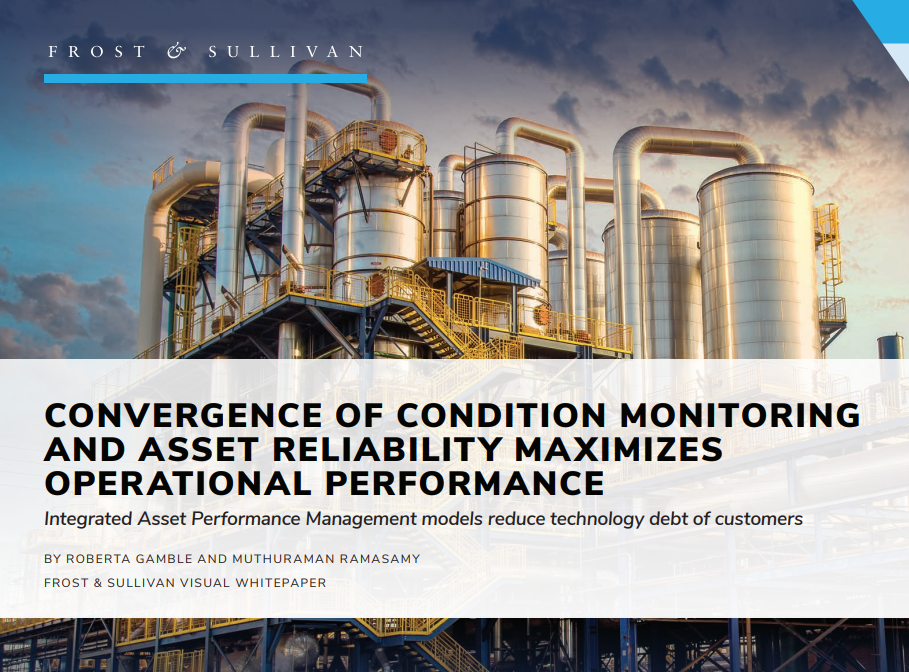This article originally appeared in the Society for Maintenance and Reliability Professionals (SMRP) newsletter.
Sarah Beddor, Senior Project Manager, and Katie Whaley, Senior Reliability Engineer, both work at Austin, Texas-headquartered ARMS Reliability, a leading global provider of reliability solutions to some of the world’s biggest utility, resource, and manufacturing companies.
Fresh from completing a year-long global project to optimize the maintenance build of a new Floating Production Storage and Offloading (FPSO) oil and gas vessel, these women, engineers, and reliability maintenance experts sat down to talk about the journey to their respective careers, why diversity in engineering matters, and how they want to encourage the next generation of engineers.
Tell me about your journey to reliability maintenance – how did your interests as a kid and your educational path lead you to where you are today?
Whaley: Growing up, I was always trying to figure out how stuff worked, I was always questioning things. I liked math and science, and I come from a family of engineers – my dad, my grandpa, two of my uncles, my aunt, and three of my cousins are engineers, and that’s all just one side of the family.
I became an engineering student at Texas A&M University and landed a maintenance internship at a Houston chemical plant just after my junior year. I had no idea what a chemical plant was and no idea what I was doing, but I really enjoyed trying to figure out what was breaking, why it was breaking, why issues continued to happen. That’s where I started really having some intense interest in reliability and trying to understand how things work, why they have problems, and how to solve them.
After I graduated, I went to work at a chemical plant for 12 years as a maintenance engineer/reliability engineer in both fixed and rotating equipment, then moved on to a larger oil and gas firm as a central engineer for the rotating-equipment group. Once I got married and moved to Austin, that’s how I found ARMS Reliability.
Beddor: When I was young, I was similarly interested in how stuff worked. I was trained to see how things fit together, which drew me into engineering. I was always a strong math and science student, and I have three sisters, two of whom are also engineers.
I studied industrial engineering at the University of Michigan. After graduation, I went to work at a railroad in the locomotive department, and I saw how heavily efficiencies lean on the reliability; so much efficiency was lost because of maintenance mistakes and the lack of a big picture on reliability.
I came over to ARMS Reliability as a reliability engineer, then got really into project management. I was an engineering manager for a little while; now I oversee all the projects in North America.
What sort of challenges did you face in college and in your first work experiences, in terms of being a woman in a traditionally male-dominated business?
Beddor: In college, there weren’t many females in my classes, but I had a lot of girlfriends who were just in different majors. When I went to my first job out of school, my comfort level sank, because when I looked around the room there was, quite frankly, no one who looked like me.
But when you’re just out of school, it’s difficult to feel comfortable in a room, because you’re not sure of the value you’re bringing. But as you move further into your career, you feel more comfortable because you gain an understanding of why you do belong and the value you’re bringing to the room. Working at ARMS, this is by far the most female engineers I’ve ever worked with, which is really great.
Whaley: When I was in college, I was in an engineering class with 53 people in it and three of them were girls. But in college, I got used to it, so when I went to work, it wasn’t really much different. And, when I got to my first job, I had a female mentor. I feel the challenges for women nowadays have become less and less, thanks to the women before who had to deal with way more than I did. I’m thankful for the people who paved the way for me. I think I struggled initially because I was young and unsure of myself. It’s about knowing your worth; I know my worth now.
Let’s talk about the FPSO project you recently completed. What did the team look like and – considering the whole project happened during a global pandemic – how did that work?
Beddor: I led the whole project. At any given time, there were anywhere from five engineers all the way up to 15 engineers working on it, most of them male. But it was a truly global project; our client was in Singapore, the build was in Mexico, and we had people working on it from the U.S., Europe, Australia, India, Latin America.
It was by far the most diverse team we’ve ever had and the most distance we’ve ever had between everybody, but because of COVID-19, we couldn’t travel to be together. Everybody was at home, and home was all over the world.
One of the big challenges associated with this project, as you might expect, was communication issues. The way different cultures communicate – like some cultures are more verbally based and might consider a conversation as a kind of contract. We use different terminology; even within reliability maintenance, sometimes the same term means very different things in different parts of the world. And for most of the people working on the project, English was not their first language. So leading the project was definitely challenging because of those factors, but mostly really fun.
Whaley: It’s super important to get things in writing and make sure everyone agrees on them, because international communication is difficult. I’ve worked globally on other projects – I worked with people in Africa, people in Thailand, people everywhere. There are accents and idioms, and coming to an understanding during a conversation, then verifying things via email. It takes a lot of time and effort just to try to make sure everybody’s on the same page. And we’re also a bunch of engineers, so you know, we aren’t necessarily always the best communicators to begin with.
Why do you think diversity is important in reliability engineering?
Beddor: At ARMS, we have a very high-performing team that likes to constantly be challenged and be learning new things. Having people from different walks of life, different engineering backgrounds, so many different industries, and with our natural collaboration model, we’re just constantly teaching each other new things. It’s fun to teach someone something you know well, and it’s fun to learn something new from someone who knows it well. It makes it really interesting and stimulating to work in those diverse teams.
Whaley: What we do is essentially problem-solving, and we need people who are different from each other to think about problems differently, people coming at it from various perspectives. The experience they have, the failures they’ve seen, the ways they approach things, the troubleshooting techniques they’ve tried, all the things they can bring to the table, it just helps so much. All those things contribute to a better, healthier team that can identify more problems and help build more complete failure mode detection analysis.
And yes, men and women are different, we see the world differently. Without stereotyping too badly, I believe we can complement each other, balance each other, and help each other.
What are you proudest of in your careers so far?
Whaley: What I’m most proud of are the experiences I’ve had and the knowledge I’ve gained through them. I love to figure out how stuff works, like I did when I was a kid, and I like to understand why things failed. I’m proud of continuing to grow as a problem solver. And I being able to pass the knowledge I’ve gained to others, too. I love being able to mentor people.
Beddor: One of the things I’m most proud of is I’m very heavily focused on continuously improving for the team – trying to figure out what went right with a project as well as how we might improve for the next project. And I love just helping nurture the growth of the team and seeing people like Katie mentor others.
What are your thoughts about getting more women into reliability engineering?
Beddor: Of course, getting girls interested in STEM in middle and high school is critical to keep building the next generation of engineers. But sometimes, I feel like what we’re showing isn’t very glamorous. I think if young women saw more people like Katie and me, saying, “Hey, what we do is really cool; we do consulting, we work eight-hour days, we’re not in an oil field,” it might make it a more appealing alternative. And we have so much collaboration and mentorship within the women in our company, we need to be advertising that, letting young women know we’ve got terrific support, we’re mentoring each other, we’re helping each other – and it’s fun.
Whaley: For me, the reason I pursued engineering was because most of my family was in it, it was normal. So I was like, “Hey, I like math and science. I’m okay at them. Engineering makes sense to me, so I’ll go toward that.” If it’s normalized for people, if they have familiarity with it, I think that can make a big difference. That exposure early on – all the way from zero to 18 – that engineering is a possibility, is important. And young women have to know that it may not be their natural talent, but that doesn’t mean they can’t do it.
Beddor: From my experience, many young people don’t know what they want to do, but maybe they do have strengths in math, in science, in engineering-type things. I think maybe we stigmatize engineering to be so much male-oriented that young women don’t want to explore it unless they feel like it’s their passion or they know they want to be an engineer. I don’t know many people who take an engineering class just to see what it’s about. I say, take some engineering classes, explore that opportunity. Try it out, see if you can do it. You might even like it – or love it. If you don’t know what you want to do, then you might as well give it a chance.
During your career, how have you seen reliability maintenance change, and where do you think it’s going?
Whaley: The plants I first worked at were extremely reactive, so “firefighting” type maintenance was often the norm. I’ve definitely seen over the course of my career a movement toward more planned and preventative maintenance. They want to have a plan. They want to implement predictive maintenance technologies and those types of things. They want to stop being so reactive and start being proactive – which is what we specialize in at ARMS, so business is good.


